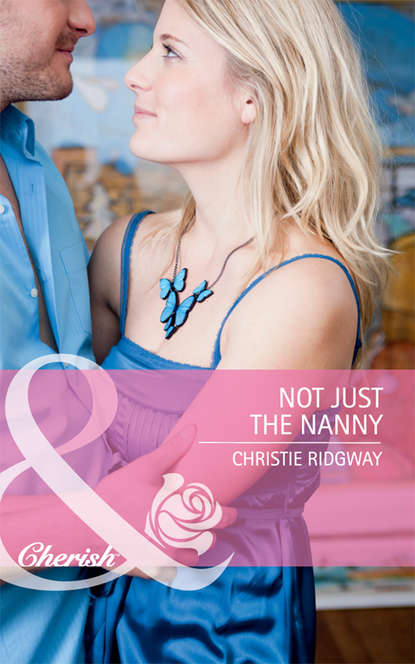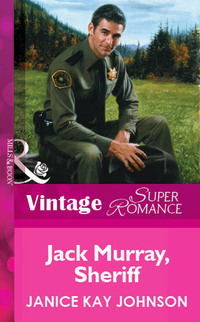
Полная версия
Christmas Presents and Past
He’d been antiwar himself before he came. Now, he didn’t like knowing that part of the reason the troops were frozen in never-never land was that people back home weren’t giving them the support they needed to actually win. Whether the war was right or wrong no longer seemed to matter. Widely reported demonstrations gave the North Vietnamese hope. They could keep melting away. Every time bombing was halted, the outcome turned further their way. All they had to do was outlast American will. In the end, Vietnam would be theirs. Everyone here knew it. And that meant that tens of thousands of American soldiers had died for nothing. Whatever he’d thought or believed before he came, Will had a fire in his belly now when he read about the demonstrators who weren’t just demanding the end to the war, they were implying that he and every other guy who’d come hadn’t had the guts to refuse, or else they’d enlisted or accepted induction so they could rape women and kill babies.
And his girlfriend was one of them. She was using him as an excuse. She was doing it for him, not thinking that he might be more likely to come home in a body bag if she made it more dangerous for him here.
He didn’t know how he felt about the increasingly strident tone of her letters or the things she was telling him. Eight members of Congress had attended an antiwar rally in D.C. Will’s country had sent him here to serve, and now even members of Congress were saying his presence was wrong. He was confused enough that he kept writing about day-to-day stuff, like the red ants or the ice-cold Cokes they’d been able to buy from Vietnamese peddlers, but not about how angry he had begun to feel at her lack of support.
That month the monsoons arrived, adding new miseries to everyday existence. Storms hit with a ferocity Will had never seen before, drenching soldiers. To cross rice paddies they’d once walked through now required boats or a willingness to swim. Under fire one night, Will had to spend a night in a foxhole, and with the rain hammering down he was chest deep in water by morning. The mosquitoes thrived, and snakes wriggled by in thick streams of water. Will and the other soldiers improvised all kinds of folk remedies to make the leeches drop from their flesh. The one blessing brought by the incessant rains was some surcease in skirmishes.
The rains continued into September. He’d now become a short-timer. Nobody wanted to die, but the idea of dying when you only had months or weeks or days to go seemed worse. He started to think, Maybe I’ll survive, and that was dangerous, so he took to wearing his flak jacket again, discarded an eon ago because the damn thing was so heavy it was all but unwearable in this climate. When he walked by to the latrine or grabbed grub at dinner, guys took to calling after him, “Hey, San Francisco! Gotta wear flowers in your hair when you go home.” At first he laughed, but it began to bug him. Hippies wore flowers in their hair, not vets like him. He started wondering if when he eventually stepped off the airplane he’d feel like a stranger in a strange land, instead of embracing a sense of homecoming.
He had some hope when Dinah told him about the amendment that senators McGovern, Hatfield and others introduced that demanded the withdrawal of all U.S. troops by the end of the year. It might not help him—his enlistment would be up early in January anyway—but at least it would all be over. Everyone would come home, not just him.
But then Dinah wrote him that the McGovern-Hatfield Amendment was defeated in the Senate. The Paris peace talks might as well not be happening. Maybe it would never end.
He asked her whether her brother had registered for the draft and she wrote back:
Stephen’s refusing, and my dad doesn’t know how to feel. He doesn’t like the idea of defying our government, but he doesn’t want Stephen to serve in such a pointless, inhumane war, either.
Maybe he was getting sensitive, but Will didn’t know how he could not feel insulted by lines like that. Stephen wasn’t going, so why had he?
Eventually her brother did register, according to Dinah, but only after insisting that if he drew a low number he was running to Canada. Of course he didn’t have to; Stephen got number 245, she wrote triumphantly. Now he could brag, Will thought cynically, that he wouldn’t have gone, without actually having to make a sacrifice.
Will figured he was down to five weeks—man, was there any chance he’d get shipped out before Christmas? Get to finish out the last couple weeks of his enlistment at Fort Ord?—when he was ordered out on a sweep and search. Seven guys were airlifted to look for NVA activity in a wooded area past a village that had already been burned to the ground. Will, who recognized the valley, took point, something he hated. It was hard to stay aware of their surroundings and also keep his eyes fixed on the ground for booby traps or mines. Is that grass or wire? Why is a stick lying in the middle of the path? They all knew about stick mines, in which the piece of wood was attached to a mine with a trigger device. Step over it? On it? Nudge it aside? Take long strides? Short? Is it better to stay on a path that might have been mined, or beat through the vegetation and make so damn much racket Charlie would hear them a mile away and prepare an ambush?
One second he was walking, worrying, scanning the woods, scanning the dirt in front of him. The next, there was a clap like thunder, and the explosion picked him up, flung him forward and then slammed him to the ground. He felt pain everywhere, like fire ants running over him, biting, but the most excruciating was in his ears. Screams were far off, and he lay with his face in the dirt, too confused to grasp what was happening.
Somebody shook his arm. “O’Keefe? Goddamn it, O’Keefe? Hang in there, we’ve got a medevac coming.” Even the voice was muffled, like real crappy reception on the radio.
He rolled to the side and shoved himself to his knees. No idea how much time had passed. Five minutes? An hour? His brain was settling like a snow globe after you quit shaking it. A mine. It had to have been a mine. Shit. Had he triggered it? That last stick in the path? He’d stepped over it…. No, he realized, mind still working real slowly, if he’d triggered it, he probably wouldn’t be able to kneel.
Oh, God, God. Roaring like a wounded water buffalo, he swung around to see the men who’d been walking behind him. The blood. God, God, the blood. That had to be Van Gorder who no longer had legs, and who was that behind him? He couldn’t be sure, because the soldier no longer had a face and was clearly dead. Others were wounded; the cries were theirs.
Will groaned and flung himself to the side, puking up everything in his gut.
Shit, yeah, he’d stepped over the stick. But Van Gorder hadn’t. And Will was responsible. He’d led them to their deaths.
Things became a blur then: the eventual arrival of a helicopter, blades beating and leaves flying; getting loaded; medics hovering over him. Eventually an operating room in Cu Chi, where he shook with the cold and realized it was air-conditioned.
A surgeon with a mask over his face appeared in his line of sight. “I’m knocking you out, Will. You’re going to be fine, but we need to clean shrapnel out of these wounds and stitch you up.”
He threw up when he awakened, and again after they let him suck ice cubes.
“Lucky you were wearing your flak jacket,” he heard twice. Most of the damage was on his legs, although they’d pulled a sharp piece of metal out of the back of his neck.
Eventually an officer visited to tell him that he might have made it back to his unit under other circumstances, but since his enlistment was about up, he was going home.
“Do my parents know I was wounded?” he asked.
“They were notified.”
Going home took two more weeks. At last he flew into Travis Air Force Base. He’d recovered enough to make his way down the steps himself and to hobble across the tarmac. Wives and parents were crying and holding out their arms. He searched the crowd for faces he knew.
At last, there they were. His mom and dad, and with them was Dinah, older but definitely the girl he knew, not the hippie in the photograph. Her hand was pressed to her mouth, and tears ran down her cheeks.
They collided as much as reached for each other, all four of them. They were all trying to hold him, and shit, yeah, he was sobbing like a baby.
The drive home was surreal. It was evening, and fog hung low and thick. Through it he kept glimpsing Christmas lights. That made sense. He’d left right after Christmas, but somehow he hadn’t even thought of the holiday. Earlier, he’d planned to buy presents for his parents and Dinah before he flew home, but he’d expected to have time. He had only a few souvenirs, but they were all of a war Dinah despised. She wasn’t proud of his service, so his Purple Heart wouldn’t be deeply meaningful to her.
He and she rode in the backseat of his parents’ Buick. She reached over and took his hand. In a quiet voice, she said, “We’re so glad you’re home, Will. We’ve been so frightened.”
“Yeah. Boom—” he clapped his hands “—and, hey, you can go home, O’Keefe. Kind of a surprise ending to the party.”
He felt her surprise at his levity. His mother turned her head, too.
“They said…some other men were killed?” she asked hesitantly.
Bile rose in his throat. He swallowed it. “There was a mine. I was lucky.”
His mother turned to face the front so quickly, he knew it was to hide her distress, though he might have had trouble seeing it in the dark.
Beside him, Dinah said fiercely, “Well, things will be different now.”
“What do you mean?” he asked.
“I brought something for you.” She held out her hand.
Puzzled, he took what she handed him. It was stiff, but cloth. A patch? Headlights coming the other way briefly illuminated it. It was a peace symbol—white—embroidered against a blue background.
She touched the front of his fatigue jacket. “I’ll sew it on there for you. Now you can speak out.”
He wanted to drop the patch, or thrust it back at her. Instead, he just sat there. His voice sounded a little strange. “My Christmas present?”
“Well…” She chuckled, a musical sound he’d dreamed about. “I have others for you. But…yes. A first present.”
Something he didn’t want. Didn’t understand. A symbol that repudiated everything for which the men around him had died.
“I’m so glad you’re home for Christmas,” she murmured.
Конец ознакомительного фрагмента.
Текст предоставлен ООО «ЛитРес».
Прочитайте эту книгу целиком, купив полную легальную версию на ЛитРес.
Безопасно оплатить книгу можно банковской картой Visa, MasterCard, Maestro, со счета мобильного телефона, с платежного терминала, в салоне МТС или Связной, через PayPal, WebMoney, Яндекс.Деньги, QIWI Кошелек, бонусными картами или другим удобным Вам способом.












